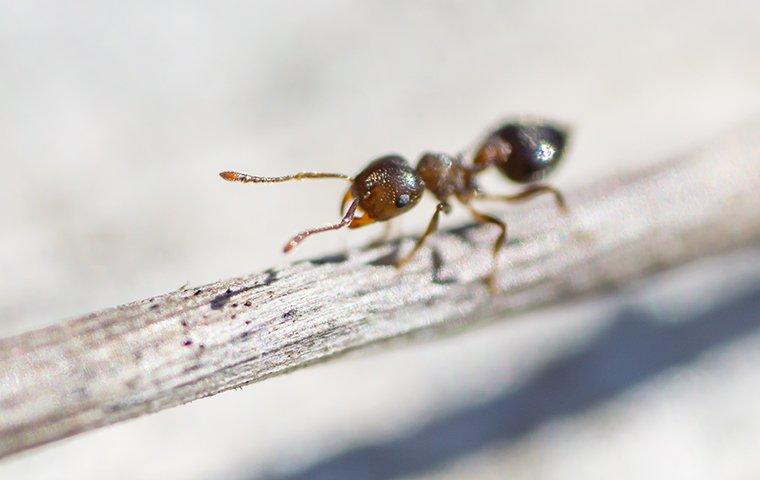
Ant Control in Colorado
Providing Effective Ant Control Solutions for Homes and Businesses
Many different ant species are indigenous to our area of Colorado. Pavement ants, field ants, odorous house ants, and carpenter ants all have unique attributes, but they can invade and cause problems for people and pets. While these ants vary in size, they often share similar coloring. Most appear dark brown or black, sometimes showing a dark orange or red tint in direct sunlight.
Ant activity in Aspen and throughout Pitkin County often increases in spring and early summer, when moisture and temperature changes drive ants toward homes and businesses in search of food and shelter. Many homes in Pitkin County have wood structures, historic details, or dense landscaping, which provide ideal places for ant colonies. Because local ant behavior responds to Colorado’s mountain climate, we tailor prevention strategies for residents and property owners in the region to achieve lasting ant control.

Are Ants a Threat to Your Home?
While some ants aren't typically dangerous, particular species can threaten your property. Among the types found in this area, carpenter ants pose the most significant concern because they can damage wooden structures over time, including homes and businesses.

Hear From Our Happy Customers
At RAM Pest Control, your satisfaction is our priority! See for yourself what our customers have to say about working with us.
-
“- Karna P
Very responsive and professional! I will always use these guys!!
” -
“- Daniela K
Excellent pest control company in the valley!!!
” -
“Thank you Tate...I look forward to seeing you soon.”- Candy A.
-
“- Candy A
Tate was exceptional. I look forward to to having him come on a monthly basis and working with him in the future. He took the time to answer all of my questions and was very knowledgeable and I really appreciated that. Thank you Tate...I look forward to
” -
“- Ruth G
Brandon put a new metal trap to catch mice and it worked in a day. He returned to remove dead mouse and reset trap. Pleased with his idea and response.
” -
“- Daniela K
Great pest control company, Tate is very knowledgeable and professional!
” -
“Very nice guy and great service.”- Stephanie F.
-
“- Amanda I
Best pest management in the Valley. Highly recommended!
”

Why Choose RAM Pest Control?
-
Over 20 Years of Experience
-
Customer Care Focused
-
Locally Owned & Operated
-
Effective & Affordable
RAM Pest Control's Blog
Want all the latest news or updates? Browse through our blog to read our most recent posts and featured articles.




